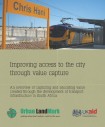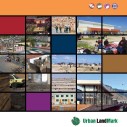Crop research to benefit poor farmers in marginal areas of the developing world: a review of technical challenges and tools.CAB Reviews
Despite great successes in crop research for the developing world, many poor farmers in marginal areas have not benefited. There is increasing recognition that crop research can and should benefit these farmers. This paper reviews some of the key technical issues related to the challenge of formulating and carrying out crop research that is targeted, relevant and appropriate to these farmers, with a particular emphasis on crop improvement. It examines the reasons that underpin the lack of research impacts, and some of the key challenges and tools available to make this happen.





